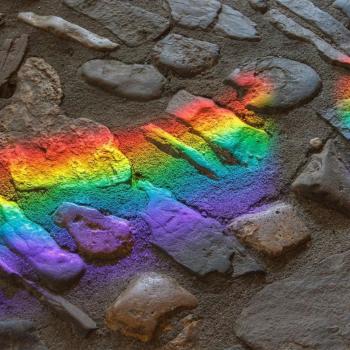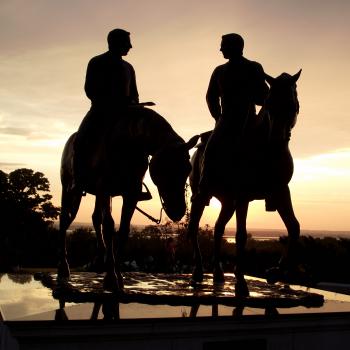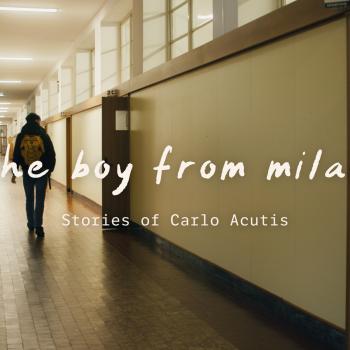I like Harvey a lot! I've been reading his books since I was a young man and I got to know him when I was teaching at Harvard. He's a very important thinker about the Christian faith at a very important time in history. The religious world is breaking into two parts: One is the part that can't engage in today's world. This part of Christianity is still shouting yesterday's answers louder and louder. Some people like that kind of approach. There are Catholic versions of this backward-looking approach to faith and there are Protestant versions -- all marching steadfastly into yesterday.
And the other? Is it the part that's trying to adapt to the future as Harvey Cox and you are describing it?
Yes, we need to transform this enterprise of Christianity. One thing we have to realize is that we no longer believe most of the old things we were told we had to believe. Go to a Christian funeral today. The liturgy still states the old truths but when you get around to talking about the person who's now gone, there's not a great affirmation about life after death. Think about what you hear at funerals these days. Now, they're mostly memorial services that celebrate who the person was.
Harvey says this is the age of spirit -- meaning that it's no longer an age in which the old dogmas mean much to people. Faith still is vitally important, but...
...but now the frontier we need to explore is: What do we mean by spirit? How do we move deeply into life to touch the wellsprings of eternity? That's why my book's entire title is so important to me, Eternal Life: A New Vision, and the subtitle is "Beyond Religion, Beyond Theism, Beyond Heaven and Hell." I'm calling people to life. In my experience, the more deeply I live, the more in touch I am with that which is holy. The more I wastefully love, the more I am in touch with God, the God who Paul Tillich called "the ground of all being." It looks like Harvey and I are chronicling the same transition we see unfolding. This is a frontier -- a period of significant turning into something different. This book is about eternal life, but I use that handle of eternal life to explore a lot of ways that we're changing.
People will find some startling insights in your new book, I think. One of them is your call to people "to embrace death." Explain that point a little, will you?
We do need to embrace death as a friend, not an enemy. Death is as natural as our birth. Suppose there was no death. Our life would become an endless monotony -- 500,000 years of playing shuffleboard in a nursing home. Because we know that death is a part of life, you don't want to let a day go by without telling your spouse how deeply you love this person. Death is what gives life its passion and what drives us from the depths of our existence. The more deeply I reach into life, the more I touch the things that truly are eternal.
Today, we're strongly recommending that people pick up a copy of your book and read all the 250-or-so pages for themselves. But let's give them a taste of what they'll find in these chapters. One very provocative argument you make here is that our old conceptions about Heaven and Hell simply have to be abandoned to free ourselves from a lot of old religious baggage that's not really helpful anymore.
The teachings about life after death that we've inherited really have been aimed at controlling human behavior. What we've been taught really is about scaring us to act in a particular way. We have to get away from that concept. I don't know any parents anymore who would try to raise a child by saying: I'm going to write down everything you do -- good and bad -- and I'm going to punish you for all the bad and reward you for all the good. No one thinks that's good parenting, but that's one way we've been taught about Heaven and Hell.
We need religious maturity. Too many people want to keep other people in child-like innocence so they can be manipulated. That's why so many people talk about God as Father. Heaven and Hell have been part and parcel of this. I don't know anybody who is helped by being told how bad they are -- yet the liturgies of my church tell me over and over again what a wretched sinner I am. The liturgy tells me I'm not worthy to gather up the crumbs under the table. These are childlike images -- what a slave says to the master. That's the image many people have of our relationship with God. I think that's a dreadful image. We have to break that cycle and call people into a new maturity.




